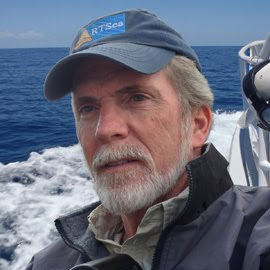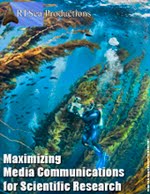I have agreed with the position that a properly designed and managed facility can provide the means for the general public to see and appreciate animals that they would normally not ever see in they're day-to-day lives. And if properly presented and supported by educational information, aquariums and zoos can enlighten the visitors as to the delicate and precarious lives these animals experience in the wild thanks to the often negative impact mankind has had on the environment.
The Alliance of Marine Mammal Parks and Aquariums is an organization representing ocean-themed amusement parks like Sea World, UNEXSO Dolphin Experience, Georgia Aquarium, and others. It affiliates itself with many of the professional accreditation and regulatory agencies and research organizations like the AZA (Association of Zoos and Aquariums, but the bottom line is it is a professional organization representing a particular segment of the entertainment industry. It's job is to collectively represent many different marine mammal venues and help put their best foot forward.
The Alliance issued a press release on Monday: "Public Confirms Overwhelming Support for Important Conservation Education Missions of Marine Parks, Aquariums, and Zoos." It summarized the results of public polls released in 2005 and 2012 which showed great support for these venues as places where people learned to appreciate marine mammals and by extension develop a greater respect for them.
"Ninety-seven percent of people agree that marine life parks, aquariums and zoos are important because they educate children about marine mammals - animals that children might not have the opportunity to see in the wild. In addition, many continue to feel that people are more likely to be concerned about animals if they learn about them at marine life parks, aquariums and zoos. In both 2012 and 2005, 93 percent agreed with this statement."
Initially, this all seems very encouraging both for conservationists and for the parks themselves. However, a quote by the Alliance's director caught my attention.
"People feel that being able to connect with dolphins, killer whales, beluga whales and other marine mammals in facilities is important for education and conservation," said Marilee Menard, executive director of the Alliance. "This is clear not only from the consistent support over time, as demonstrated by the two polls, but by the 45 million people who visit Alliance-accredited marine life parks, aquariums and zoos every year."
Dolphins, killer whales, and beluga whales. Does the public fully understand the natural conditions these animals normally thrive in, particularly the dolphins and orcas (I prefer that name over killer whale) as pelagic animals that utilize echolocation and other advanced faculties of aquatic communication?
Full confession: as much as I can see value in aquariums and zoos, I am opposed to the keeping of dolphins and orcas and other whales in captivity. No facility is capable of providing a large enough habitat where these animals can move freely and utilize the full range of their natural abilities. For them, captivity is most stifling and there are documented cases of unnatural, dare I say neurotic, behavior in captive whales and dolphins. I side with the position taken by Jean Michel Cousteau that these animals should not be kept in marine parks and trained to do tricks for the amusement of the crowd.
Unfortunately, these animals, who, ultimately, become simply attractions to sell tickets, are huge money makers for these parks. So the public relations strategy to protect their cash cows focuses on admitting nothing that could be construed as negative and strengthen their position by showing that the general public is on their side - a survey.
"Additionally, the latest poll found that 89 percent agree that children learn more about marine mammals at an aquarium or zoo than in a school classroom, and 88 percent agree that you can learn about animals at marine parks in a way that can't be replicated by watching film or TV programs. Some 91 percent agree that seeing a marine mammal at these facilities fosters a connection to the animal."
That statement is more a criticism of the educational system and entertainment media than it is an endorsement of marine mammal parks. As a media consultant, I know full well how surveys can be structured to produce the results you want. A totally unbiased survey - even when prepared by an "independent" firm, as this one was - is indeed a rarity. Did any of the questions mention that these marine mammals normally live in open ocean and use echolocation and other vocal sounds, which travel great distances, to communicate and establish close social bonds within groups of animals? And that in captivity, these abilities are hampered by small enclosures that do not allow for a normal amount of movement or transmission of sounds (a bit like being in an echo chamber). Would the survey respondents answer favorably if they were aware that those are the conditions in which these animals are confined?
No, let's not lay out the whole story. Let's just get their reactions to seeing a whale jump through a hoop or balance a ball on its head. Tell the ticket holders all about how amazing these animals are and convince them that their handlers care for the animals (which I actually truly believe is the case among the handlers and veterinarians involved), but dance around the fact that it is not practical or feasible to provide a natural and healthy environment for these animals. Ask the right questions and it's easy to get people on your side.
The Alliance's survey has one singular purpose: distraction. It whitewashes the issue of how animals like dolphins and orcas exist in the wild by tallying up public support from a public who does not have a full picture or understanding of the situation. Put up a good front, then let the revenue roll in.
Source: Business Wire


















3 comments:
Thank you, I have read your blog for a while and admire your approach, this is a very well written piece.
Are we really teaching the public anything about wild animals when we put them in captivity and teach them to perform tricks for food? Its far more about entertainment and making money.
Whales and dolphins are social animals that have families and communicate with echo location. Take them out of the wild and you remove a family member and their ability to communicate while in a small pool of water where their echolocation doesn't work. Taking away their echo location is like blindfolding a human in jail.
Marine mammals are still being caught around the world for countries that want to have Sea World style parks to help generate profit. They lack appropriate funding and the marine mammals often suffer horrible conditions of dirty warm water, sub-standard food quality and tiny pools.
Captive marine mammals need to be a thing of the past. Help support a global ban on marine mammal captures and transportation. These intelligent creatures have every right to live freely on this planet as we do.
Well said, Jim. Well said.
Major aquariums have built huge, multi-million gallon exhibits to provide "breathing room" for open-water species like tuna. Given the social networks and communication abilities of marine mammals, a comparable effort is just not feasible, regardless of whether the animals are merely put on display or paraded around like clowns for our amusement. It's just not humane and reflects on us as a species.
Post a Comment